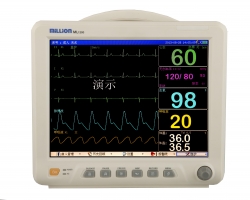Wechat QR code

TEL:400-654-1200

TEL:400-654-1200

What you have to know to do dynamic electrocardiogram
Dynamic electrocardiogram is often called "Holter", commonly known as "back box". It can record electrocardiogram continuously for 24 hours or more, about 8-140,000 heartbeats. Usually, we only record electrocardiogram for more than ten seconds in supine state, and record more than ten heartbeats with little information. For intermittent angina pectoris or arrhythmia, it is difficult to capture the waveform of attack in a very short time, which easily leads to missed diagnosis. Therefore, when patients have intermittent seizures, such as palpitation, syncope, chest pain, chest tightness, or no obvious discomfort, but there is a transient abnormal electrocardiogram, it is recommended to do dynamic electrocardiogram examination, observe 24-hourelectrocardiogram, to provide the basis for clinical diagnosis and treatment. Ltd.
Popular Description of Dynamic ECG Reporting

Is sinus rhythm normal?
First of all, when patients get the results of dynamic electrocardiogram, they will see the first one: sinus rhythm, which does not understand what it means. Simply speaking, sinus rhythm is normal rhythm, while ectopic rhythm is abnormal, such as atrial fibrillation and other diseases. Ltd.
2. Is there any problem with premature beats?
Many people report "premature beats", in fact, premature beats do not necessarily have heart disease; all types of premature beats can occur in normal people, such as staying up late, sleeping poorly at night, fatigue, emotional excitement and so on. If there are less than hundreds of occasional single premature beats within 24 hours without any discomfort symptoms, the lifestyle can be improved to adjust, regular follow-up review, no drug treatment. Once the number of premature beats is large, more than 1000 or premature beats occur in different waveforms within 24 hours, and occur in pairs, more than three times in a row, accompanied by uncomfortable symptoms, high attention should be paid to timely medical treatment in the hospital.
3. Should we pay attention to long intervals?
If the long interval lasts more than 3 seconds, attention should be paid to it. We have monitored long intervals of up to 5-7 seconds, which means that the heart stops for 5-7 seconds, when vital organs and tissues of the body lack effective blood supply, and even cause sudden death, with serious consequences. Some of these patients will have obvious symptoms, such as chest tightness, chest pain, syncope, choking and so on, but some of the long intervals occur during sleep at night, so there are no obvious symptoms, which is easy to be ignored and lead to adverse consequences. If dynamic electrocardiogram is diagnosed as sick sinus syndrome or atrioventricular block, the heart rate is often less than 50 beats/minute, with obvious clinical symptoms, or heart rate is less than 40 beats/minute, or a long interval of more than 3 seconds, even without any symptoms, cardiac pacemaker should also be considered.
4. What does the ST-T change mean?
ST-T changes and T wave changes usually indicate insufficient myocardial blood supply, angina pectoris, myocarditis and even myocardial infarction. We should be vigilant and consult cardiologists.
Reminder:
1. No magnetic resonance, CT, echocardiography and other examinations can be performed during wearing the instrument.
2. Put on the equipment, you can leave the hospital, normal activities, but to avoid vigorous activities on both upper limbs, to avoid sweating, can not bathe, to prevent the electrodes from falling off;
3. Patients allergic to electrodes (tape or conductive paste) should inform their doctors in advance.
4. Inform your doctor if you have a pacemaker installed.
5. If discomfort occurs during wearing, please record the symptoms and time at that time.